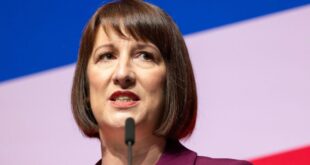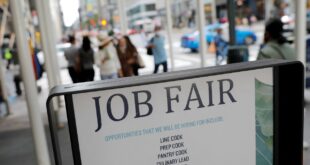
Mortgage misery is once again creeping into households as major lenders reverse recent rate cuts. Halifax, Santander and Accord have hiked their fixed mortgage rates in the past 24 hours, signalling a worrying new direction for the market.
Experts say the increases – though modest for now – are likely to spread as lenders react to stubborn inflation and jittery financial markets. Some 1.6 million households face remortgaging this year, and even small rate hikes can add hundreds to annual repayments. For example, a 0.25 percentage point rise can cost an extra £430 per year on a 30-year loan.
In a blow to those who will have to remortgage, the Bank of England’s Governor, Andrew Bailey, warned that hopes of further base rate cuts are “shrouded in uncertainty”.
Appearing before MPs on the Treasury Committee, Mr Bailey admitted: “I think the path remains downwards, but how far and how quickly is now shrouded in a lot more uncertainty, frankly.
“We’ve added the word ‘unpredictable’ to ‘uncertain’ because of the sheer nature of what we’re dealing with.”
His comments came as so-called swap interest rates, which heavily influence mortgage pricing, rose again, triggering the latest hikes from lenders.
Industry figures said borrowers waiting for cheaper deals may now be left high and dry. Andrew Montlake, CEO at Coreco, told Newspage: “It seems to be a case of death by a thousand increases in the mortgage market at present.
“Lenders are slowly but surely reversing their recent rate cuts in response to rising swap rates.
“Prospective borrowers may be left bemused by a rising market once more, as many were waiting on the expectation of even lower rates.
“In a capricious market such as this, it pays to act quickly and lock into a rate first to ensure you get the home of your dreams rather than trying to play the market and risk everything.”
Justin Moy, of EHF Mortgages, added: “Though these are small-ish rate increases in the main, high street lenders pricing mortgages on wafer-thin margins and wobbles in the swap market will be passed onto borrowers within a few days.
Other mainstream lenders will inevitably follow as no one lender will want to be cheapest, and therefore attract too much business.”
It comes after months of cautious optimism that rates were finally heading down following a series of cuts by the Bank of England. But the trend has now reversed.
Rob Peters, Principal at Simple Fast Mortgage, said: “The recent rate increases from major lenders are a measured response to market movements.
“With swap rates rising and inflation proving stickier than hoped, lenders are adjusting pricing to reflect the reduced likelihood of near-term base rate cuts. Rates remain historically low compared to where they were even six months ago so while this round of increases isn’t ideal, it’s not a disaster, either.
“Lenders are responding to real-time conditions and borrowers should, too. The message is clear: don’t wait for a perfect moment, get advice now, compare options and lock in where it makes sense to do so. There are still plenty of good deals out there.”
The changing mood in the market reflects deeper global worries, including fresh trade tensions between the US and China, and a bleak economic outlook.
Bailey blamed the worsening outlook squarely on international instability, saying: “It obviously increases uncertainty… and one impact of that is it tends to cause delays and putting off of investment decisions, because they are typically a once-only, irreversible decision.”
Ranald Mitchell, of Charwin Mortgages, warned: “Accord, Halifax, and Santander are raising fixed rates as market optimism cools and swap rates climb.
“This is not an era of ever-cheaper mortgages. This is a seesaw market where rates swing both ways.
“Waiting for rate perfection could mean missing the boat entirely, especially with house prices marching upward. Delay now, and the cost might not just be a higher rate, it could be the cost of homeownership itself.”
 Latest World Breaking News Online News Portal
Latest World Breaking News Online News Portal






